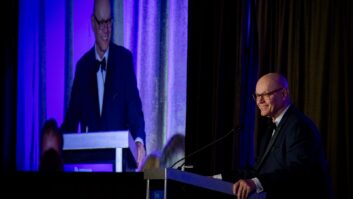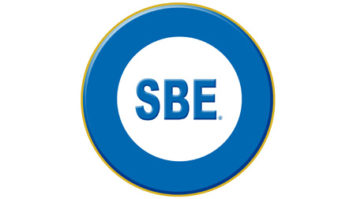With 116 member organizations in 56 countries, the European Broadcasting Union is the world’s largest association of public service media. Radio World Spoke to EBU Technology & Innovation Project Manager Digital Radio Ben Poor, to learn about the measures the EBU and its members are taking in light of the COVID-19 health crisis, and how he sees this situation impacting the future of broadcasting.
RW: What impact is the coronavirus emergency having on EBU members’ station operations?
Ben Poor: As a general rule, EBU Members are the primary go-to point for real-time information on this evolving crisis. This means that — no matter what — they will continue to broadcast and have set themselves up to address this challenge. Over the past years, many have had substantial downward pressure on their operational and capital expenditure budgets. Thus they have had to pioneer automation and efficient workflows. Despite this, they have typically split their operational teams into separated teams that have no direct contact and are typically located at different sites and at home.

Our members have sent all non-operational staff home so as to avoid compromising the operational teams and are active in working-from-home. In addition, they have stalled all non-operation-critical projects due to national containment procedures.
RW: Are there specific impacts in technical infrastructure and programming operations we should know about?
Poor: EBU members are prioritizing their news operations as part of their response to the crisis. They have also put in place measures to protect their news teams. This typically involves them being isolated as far as possible. In addition, there are evolving guidelines regarding live shows, where audiences are now excluded from attending, and being pre-recorded. Some radio talent is even making their contributions via links from home.
Also, operators are regularly disinfecting buildings and equipment of course. As regards distribution infrastructure, broadcasting continues as before. EBU members have prepared for scaling their online distribution channels to ensure that they can address the explosion in demand.
There is a shift in viewing and listening patterns, where EBU members have noticed that the evening peaks are now spread throughout the day. So, the broadcasters are revising their schedules to address the older populations at home as well as the children that are also now at home as schools have closed. Many others have set up dedicated podcasts to keep people informed about the crisis.
These are just some of the measures EBU members have introduced, and others are evolving continuously.
RW: What impact is the emergency having on radio engineers and technical staff, professionally or personally?
Poor: Due to the importance of the radio operations to the general well-being and security of the populations impacted by the lockdowns around Europe, staff is working around the clock in isolated teams to ensure the continuity of the broadcast and online operations. That said, many of the engineering staff have been working from home, and the operational staff are typically isolated so as to avoid contamination. This places some strain on the teams that will doubtless surface as the crisis evolves.

RW: It’s often common to ask engineers to step in when other staffers have to step out. Are there any best practices the EBU hopes engineers and their employers will adopt?
Poor: Indeed, the EBU has gathered the best practices being adopted by the pioneers in this space. These are available to any member or broadcaster through the EBU’s website. We have also established collaborative expert groups to facilitate communication between members so as to enable fast and efficient transmission of information. Keeping our stations on air is our business and all EBU members already have sophisticated contingency planning. Interestingly, one item we have noticed is that some of the planning is focused around equipment rather than people, so we’ve had to adapt some of this planning for the current crisis.
RW: How are you working to help your members during this crisis?
Poor: The EBU itself is a means of exchange between the members that are facing broadly the same challenges. Even if the individual countries have adopted different approaches to the crisis.
We have set up a dedicated webpage to share information. We are also looking at opportunities to share content between members and are providing advice and guidelines for how to deal with this situation.
RW: How do you see this situation impacting the future of broadcasting, in particular that of radio?
Poor: The longer-term impact of this crisis remains to be seen. With all non-essential projects on hold, we may not feel the impact on radio (and TV) schedules until later in the year when the productions currently in preparation would normally air.
This crisis may actually accelerate some of the developments around decentralization of studios and content production. This is especially true for radio, where we are seeing a slight trend in some countries to use content from outside traditional studios.
We have issued a report outlining audience reliance on public service media news during this period. The report also includes best practice case studies.







